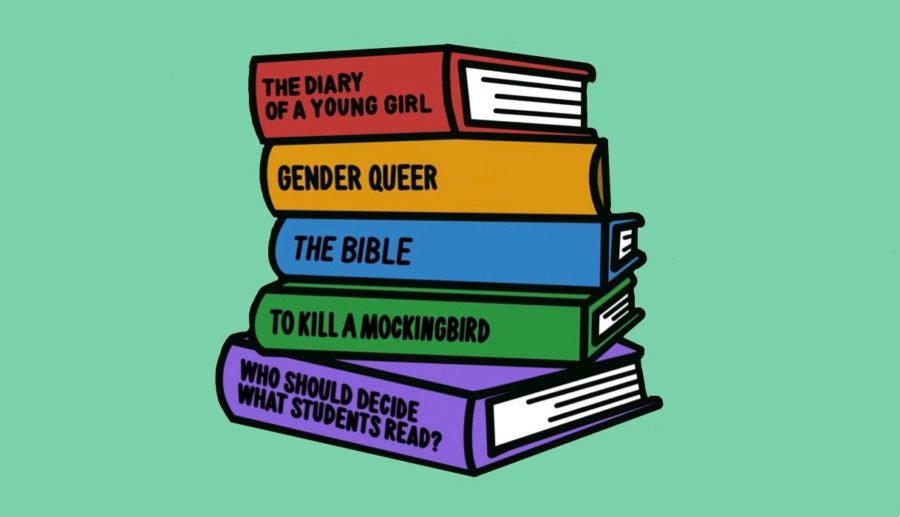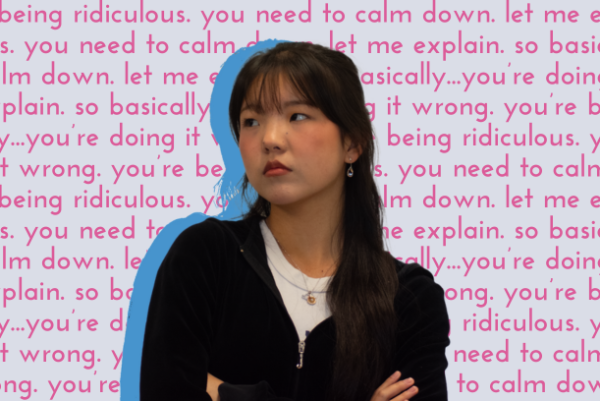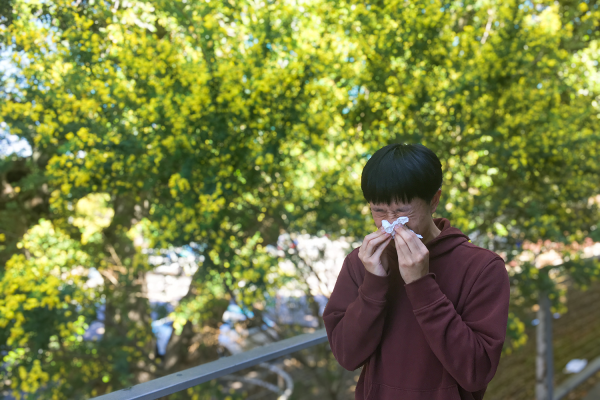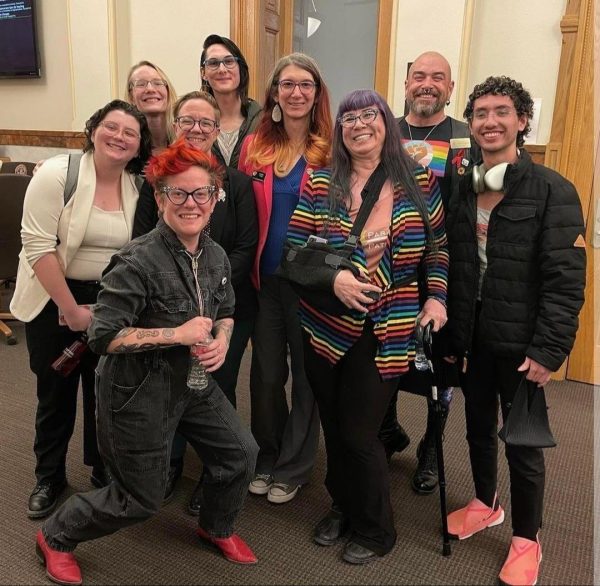Simple changes, or sign of the times?
Unedited, more intimate version of Anne Frank’s diary is no longer being taught to Shalhevet freshmen. The reasons are complicated.
BP Graphic by Keira Beller
FOCUS: According to the American Library Association, more books are being banned, challenged or removed from classrooms and libraries across the country than in previous years. The reasons vary but often involve mention of sex or violence.
December 8, 2022
At the beginning of the 2021-22 school year, English teacher Ms. Nancy Fasules received the news from Administration that she should not teach The Diary of a Young Girl, the unredacted compilation of Anne Frank’s diary which was published in 2001.
It’s a book that she had taught to her ninth-grade English Composition class for the previous two years. She said it was the first time in her four years at Shalhevet that she had been asked not to teach a book.
Principal Mr. Daniel Weslow, who leads General Studies, said the reason was a simple curriculum change.

“There are several texts that we teach, and based on several factors, we either pivot and don’t teach again or simply don’t teach because it’s not aligned with the goals of the year, for the department, teacher or the school,” Mr. Weslow wrote in an email response to a Boiling Point question.
He said these decisions are made by the various academic departments.
“Each year, departments meet to review the texts in ALL classes,” Mr. Weslow wrote. “Teachers share their experience with the books, how the students interacted with it from a reading, analysis, discussion, etc., standpoint, and begin to build their booklist for the following year in January/February. We solidify book lists for the following year in General Studies by May 15.”
Ms. Fasules said she she was told not to use the book after the school year had started.
“The school year had already started and the book had appeared on the list of books students needed for class,” Ms. Fasules said.
Mr. Weslow said this instance of a change in curriculum was not unique to the Anne Frank book. He gave two other examples: The Color Purple, by Alice Walker, and A People’s History of the United States, by Howard Zinn.
We looked at everything closely, with what grade levels are assigned to which — like, are they developmentally appropriate for that grade, but also how much time we’re focusing on different conversations in those classes and the goals for that class.
— Mr. Daniel Weslow, Principal
He said The Color Purple, along with possibly not meeting the goals and skills for the class, was also revisited because of well-known charges of antisemitism made against the author, Alice Walker.
“The author is directly opposed to some of our core school values, which is important to kind of have a conversation about – which we did, and we decided to go in a different direction,” said Mr. Weslow in an interview.
Dr. Keith Harris, chair of the History department, said the Zinn book had been used by previous Honors U.S. History teacher Dr. Michael Yoss, so he decided to teach it in his first year in the role. The next year, he switched to Give Me Liberty! by Eric Foner.
“Zinn’s book is very one-sided and quite clearly driven by a political agenda (as Zinn freely admits),” said Dr. Harris in an email response to Boiling Point questions, “thus my surprise that Dr. Yoss had used it in the first place, but that was his choice.”
Dr. Harris still offers Howard Zinn’s perspective in his Honors U.S. History course, and said he discusses the book at length in his senior Historiography Seminar.
“I feel that it is important to provide a multi-dimensional overview of American history that includes multiple perspectives from all across the political spectrum, not just one,” he said. “Foner’s book does a much better job at this, and even so, I still supplement with primary and secondary sources to fill in the gaps.”
But Ms. Fasules still wanted to teach The Diary of a Young Girl, which she said had done well with her previous year’s freshman classes.
“Many of Anne’s thoughts, feelings, aspirations and dreams were the same as theirs,” she said, referring to her ninth-grade students.
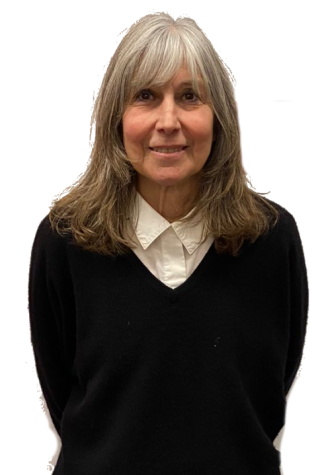
“I was willing to deal with, you know, was this a little risky?” Ms. Fasules said. “Yeah, it’s a little risky, but it’s in a really wonderful context. It’s in a context that’s rich and important, especially in a Jewish school. And I felt that this edition stood up to time. In fact, it was more relevant than the earlier one.”
She said she was especially surprised that a book about the Holocaust would be held back at Jewish school.
Asked how Diary of a Young Girl might not have aligned with the year’s curriculum goals, Mr. Weslow suggested it had to do with the grade level.
“We looked at everything closely, with what grade levels are assigned to which…,” Mr. Weslow said, “like, are they developmentally appropriate for that grade, but also, how much time we’re focusing on different conversations in those classes and the goals for that class.
“So, I think at the end, we want to make sure that if it’s a ninth-grade class or a 10th-grade class, what are the holdups going to be? What are the priorities going to be in those conversations?”
In this case, he said, there was concern the certain passages of an intimate nature had become a distraction from larger themes in the book.
“There were conversations that were coming up through class discussion that were too intense and not necessarily appropriate for a ninth-grade class,” Mr. Weslow wrote in response to Boiling Point questions. “These conversation centered learned around sexuality and other topics that were brought up and shared by both students and parents.”
Head of School Rabbi David Block said that although this curricular decision was in the hands of Mr. Weslow, he himself was also responsible for the decision to remove the book from the ninth grade’s curriculum, as head of school.
The decision was made, he said, to improve students’ learning.
“The focus of a curricular choice is about positively choosing what is best for student learning, not about ‘restricting’ that which we don’t ultimately choose,” Rabbi Block wrote in an email response to questions from the Boiling Point.
“Now I understand that more attention is drawn to something when it, instead of it not being chosen to begin with, is changed later on. That’s entirely legitimate.Still, the rationale is the same…,” Rabbi Block continued.“It is not something that is objectively ‘good’ or ‘bad,’ ‘right’ or ‘wrong’ — it’s simply a matter of how it played out and what creates the greatest learning for those students.”
Although The Diary of a Young Girl was moved out of the English curriculum, he said the book still has a place at Shalhevet.
“To be quite clear, if we had a Holocaust library (which we are building, God willing), I would happily include the book in our collection,” Rabbi Block said. “It was simply a curricular choice for a particular class with particular objectives.”
Still, the book is no longer being taught, and Ms. Fasules does not know why.
The question of why certain books should or should not be read by high school students permeates a national discussion over what books should and should not be read by high school students, and the factors that may influence those choices. And while Mr. Weslow was emphatic that Shalhevet’s actions were not “book banning” – that is, a complete removal of a book from school curriculum and school libraries – more books are being taken out of libraries and school curricular every day.
According to the American Library Association, the number of attempted bannings in schools last year – 729 – was the most in the past 20 years. For this year, the ALA has reported 681 attempted book bans as of Aug. 31.
Those 681 attempts, the organization found, included the targeting of 1,651 individual titles – meaning that schools and libraries that ban books across the country are often banning more than one.
One book noted on the ALA’s list of most-challenged books of 2021 is the graphic novel Gender Queer, which was removed last spring at the Milken Community School from a class called Marginalized Voices. The book is by Maia Kobabe, who uses e/em/eir pronouns.
According to an article in the Milken Roar, the memoir about Kobabe’s exploration of their sexuality and gender identity was removed from the curriculum mid-year as a result of parent anger over images of menstruation and gay oral sex in the book, although the images were not on pages given to students as assigned reading.
Gender Queer was also banned by the the Keller Independent School District near Fort Worth, Texas, just days before their school year began, and appeared in a list of more than 40 books pulled from its classrooms and libraries. Others were The Bluest Eye and the Bible, and a graphic-novel adaptation of Diary of a Young Girl.
Keller ISD has since reversed its decision and returned the Anne Frank adaptation, along with other previously banned books, to their shelves. The district also released a new 36-page policy outlining new rules about what books could be taught.
Though the reasons are not always stated, most of the book bannings sweeping the nation seem to touch on matters of sex, sexual violence, sexuality, and gender identity.
Others are based on profanity and violent imagery. That is why Maus, the Pulitzer Prize-winning graphic novel about the

Holocaust, was banned last year by a school board in Tennessee, according to school board members in that state’s McMinn County.
Concerns have also arisen about books that raise racial issues, like Harper Lee’s To Kill a Mockingbird, which was banned by a Seattle school district just weeks before Maus was banned in Tennessee.
English teachers suspect that The Diary of a Young Girl was removed from Shalhevet’s curriculum because of mentions of sex and LGBTQ+ experiences.
There are at least two versions of Anne Frank’s Diary: a newer, unedited version, and the originally-published version that was redacted by Anne’s father following the war.
Ms. Fasules said it was only the unredacted version of Anne’s Diary that she was prevented from teaching.
One difference between them, she said, is that the unedited version includes descriptions of Anne’s arguments with her mother.
But also, the unedited version Ms. Fasules taught for two years includes content of an intimate nature, sections that were removed by Anne’s father from the version he edited.
Among those scenes are Anne becoming emotional and having a feeling of “ecstasy” while looking at an image of a naked woman, and description of her feelings for one of her female friends, which includes them kissing once and Anne’s wishing for more.
Ms. Fasules said she thinks that’s why she was told not to teach the book.
Do we expose young adults to material that then elicits really deep and meaningful discussion and thought? Or do we protect them from certain things?
— Ms.Nancy Fasules, English teacher
“It’s strictly from that passage where she’s thinking about being attracted to a female and thinking about her sexuality,” Ms. Fasules said.
Junior Gabriella Judaken, who read The Diary of a Young Girl in Ms. Fasules 9th-grade class two years ago, said it was appropriate for any high schooler.
“Obviously, in 10th grade, 11th grade and 12th, we do get into more controversial stuff whether it’s like being gay or lesbian, or like sex, all of that stuff,” said Gabby in an interview. “That is stuff that is inevitable to high school reading, high school learning. And I think that especially in ninth grade, it shouldn’t be filtered just because they are the youngest grade. They’re going to hit it eventually.”
Asked for his view, English teacher Mr. Brian Forrester said those who worried about personal, possibly sexual details in The Diary of a Young Girl were missing the point of the book.
“If you’re reading Anne Frank, okay, this is a book about a Jewish family who was hiding from the Nazis and are eventually like, caught and carried off to die in a concentration camp,” he said. “I think if a young girl’s sexual exploration is the thing that bothers you in that book, then we need to reassess some basic values.”
Although Shalhevet teachers are not required to formally send their class books lists to administration for approval, they do send them to administration in order for their lists to be sent out to students before the school year.

Ms. Fasules, now in her fifth year teaching at Shalhevet, and Mr. Forrester, in his fourth, both said they have not been discouraged by administration from teaching material touching on matters of sex in their classes; in fact, they said they are not discouraged from teaching anything.
Both teachers – who between them teach 10 classes this year across all four grades – said Shalhevet has no official guidelines pertaining to what literature teachers can teach and to what grades.
Former English Department chair Ms. Michelle Crincoli said that was also her experience when she worked at Shalhevet in Los Angeles. Ms. Crincoli is now English Coordinator at Shalhevet Scottsdale.
“I can’t remember a time that Shalhevet asked me not to teach a book, nor any other English teacher.” Ms. Crincoli wrote. “I think banning books is now a sign of the times, unfortunately.”
Mr. Weslow thinks using the word “banned” to describe The Diary of a Young Girl’s no longer being a part of Shalhevet’s English curriculum is unfair.
“Removed and banned are overly harsh words that are not reflective of our process and the way we select books in any class,” Mr. Weslow said.
Rabbi Block said that Shalhevet’s process is never only about a book, but about how that book fits with a particular class in a particular context.
“In this case, it seemed that this particular version of the diary (an extremely important read) was less effective at accomplishing the goals than other versions — for that particular course at that time. It is not something that is objectively ‘good’ or ‘bad,’ ‘right’ or ‘wrong’ – it’s simply a matter of how it played out and what creates the greatest learning for those students.”
I think as a teacher, it’s sort of easier to push the boundaries than certainly than as a parent… I do believe it’s best to provide a safe place to explore these issues, to really think about these things
— Ms. Nancy Fasules, English teacher
Nationally, however, an increasing number of teachers are being restricted as to what books they can teach overall, or even have on the premises. The removal of books from classes has been demanded by parents, administrators and even clergy.
For example, in Tennessee in February, a local pastor held a public book burning, where classics such as Harry Potter, and Twilight were burned, calling the event an act of “deliverance from Demons.”
Politicians have also gotten involved in deciding what books are acceptable for public libraries and schools. For example, Oklahoma State Senator Rob Strandridge introduced a bill that would prohibit public school libraries from keeping books on hand that focus on sexual activity, sexual identity or gender identity.
In interviews and solicitations for comments to grade-level group chats — including with anonymity guaranteed — the Boiling Point was not able to find any now-juniors or seniors who’d read The Diary of a Young Girl who supported removing the unredacted version from the school’s freshman curriculum.
Mr. Weslow did not comment as to whether any parents had been involved.
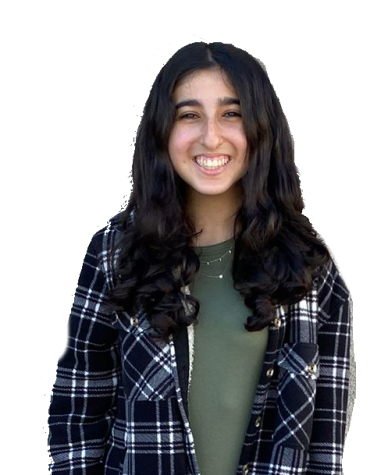
However, parental concern has been a driver elsewhere, and was cited in the Milken Roar as the reason for the removal of Gender Queer. Shalhevet English teachers think the underlying cause is fear.
“It’s either the government’s fear, or the minister, the priests’, the rabbis’ fear, or the parents’ fear,” Ms. Fasules said. “Would I be encouraging something that’s horrendous? That’s the parental fear. Are these kids going to get ideas from this book that they wouldn’t have If they didn’t read it?”
Mr. Forrester said political figures then build on those fears.
“The rubber hits the road when it’s your kid who is reading something that you don’t agree with, or that you are afraid of,” Mr. Forrester said. “And I think a lot of political forces take advantage of that. And I think that’s where most of this comes from.”
Ms. Fasules said that as both a teacher and a parent, she sees both sides.
“Do we expose children?” Ms. Fasules asked. “I mean, obviously not little, little children. But do we expose young adults to material that then elicits really deep and meaningful discussion and thought? Or do we protect them from certain things?
“How do I answer that? I think that there is no real answer. I think every parent struggles with that.”
But a teacher’s job, she said, is different.
“It doesn’t matter where you live as a teenage girl, it doesn’t matter, really, what kinds of times you’re in, you’re still thinking about the same things except now she’s just faced with an extra layer.
— Talia Davoudian, 11th grade
“I think as a teacher, it’s sort of easier to push the boundaries than certainly than as a parent…,” Ms. Fasules said. “I do believe it’s best to provide a safe place to explore these issues, to really think about these things. It’s better to do that than having kids discover when there’s no sort of adult wisdom to guide them. So that’s why I really feel we should be doing these books, we should be exploring these ideas.”
Someone who especially liked The Diary of a Young Girl in ninth grade was current junior Talia Davoudian, who thought Anne’s teenage perspective onthe Holocaust made it more digestable.
“I think that it’s an important book for us to be reading,” said Talia. “I think it’s one that really helps us put the teenage experience through the Holocaust into perspective.”
Talia said that the mentions of Anne’s feelings in the book, and her exploration of her sexuality, help teens connect to her, and the Holocaust through her.
“It just lends to her personality and it just makes her look like a human being,” Talia said. “Like she’s just a teenage girl, going through her own teenage life, going through her own changes, going through her own experiences, and they are ones that are universal, really.” “It doesn’t matter where you live as a teenage girl,” she continued, “it doesn’t matter, really, what kinds of times you’re in, you’re still thinking about the same things, except now she’s just faced with an extra layer.”
Ms. Fasules said that after what happened with The Diary of a Young Girl, she would always be faced with an extra layer when choosing books for her classes.
“I’ll be more careful after that,” Ms. Fasules said, “I mean we’re all more careful, we’re very careful.”
This story was originally published on The Boiling Point on December 6, 2022.


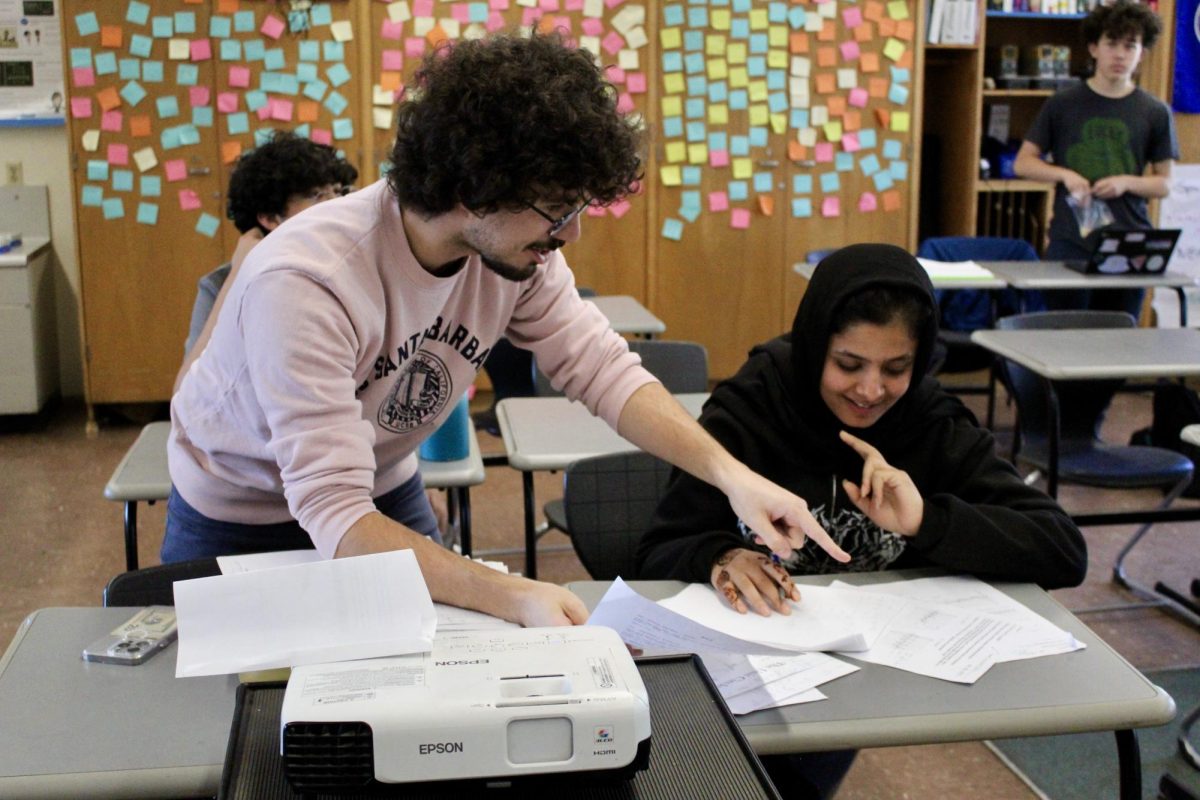






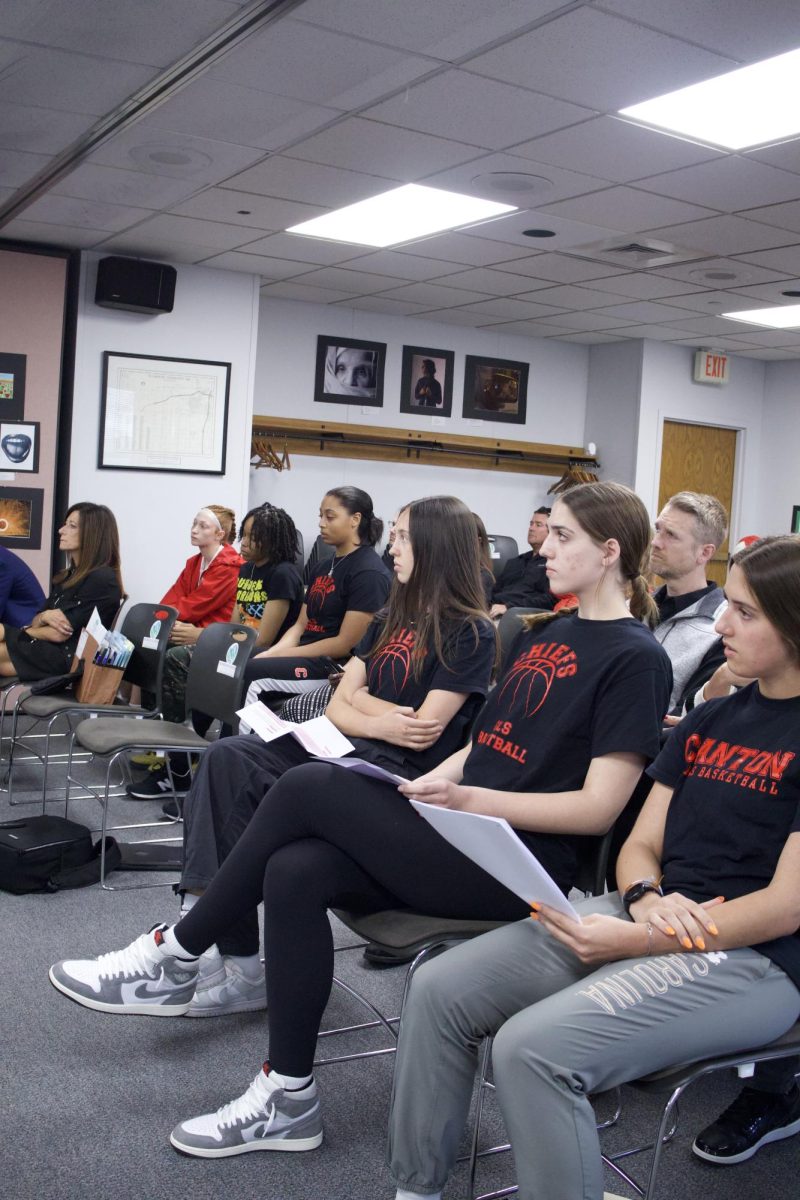







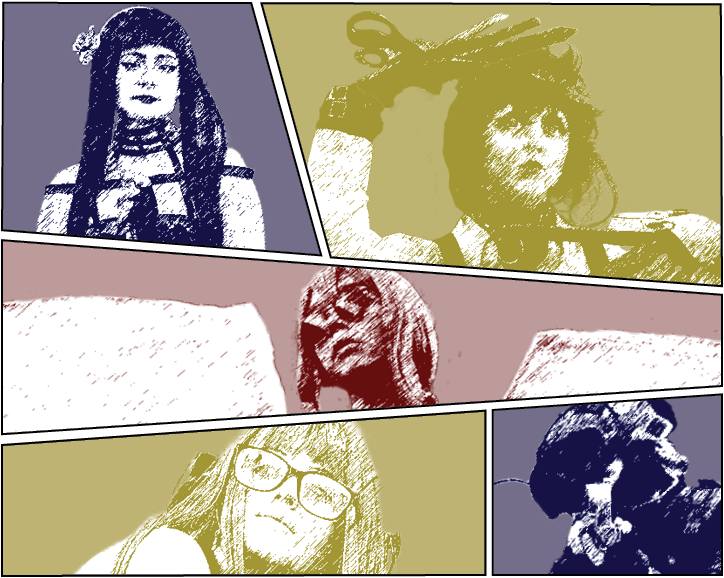













![IN THE SPOTLIGHT: Junior Zalie Mann performs “I Love to Cry at Weddings,” an ensemble piece from the fall musical Sweet Charity, to prospective students during the Fine Arts Showcase on Wednesday, Nov. 8. The showcase is a compilation of performances and demonstrations from each fine arts strand offered at McCallum. This show is put on so that prospective students can see if they are interested in joining an academy or major.
Sweet Charity originally ran the weekends of Sept. 28 and Oct. 8, but made a comeback for the Fine Arts Showcase.
“[Being at the front in the spotlight] is my favorite part of the whole dance, so I was super happy to be on stage performing and smiling at the audience,” Mann said.
Mann performed in both the musical theatre performance and dance excerpt “Ethereal,” a contemporary piece choreographed by the new dance director Terrance Carson, in the showcase. With also being a dance ambassador, Mann got to talk about what MAC dance is, her experience and answer any questions the aspiring arts majors and their parents may have.
Caption by Maya Tackett.](https://bestofsno.com/wp-content/uploads/2024/02/53321803427_47cd17fe70_o-1-1200x800.jpg)
![SPREADING THE JOY: Sophomore Chim Becker poses with sophomores Cozbi Sims and Lou Davidson while manning a table at the Hispanic Heritage treat day during lunch of Sept 28. Becker is a part of the students of color alliance, who put together the activity to raise money for their club.
“It [the stand] was really fun because McCallum has a lot of latino kids,” Becker said. “And I think it was nice that I could share the stuff that I usually just have at home with people who have never tried it before.”
Becker recognizes the importance of celebrating Hispanic heritage at Mac.
“I think its important to celebrate,” Becker said. “Because our culture is awesome and super cool, and everybody should be able to learn about other cultures of the world.”
Caption by JoJo Barnard.](https://bestofsno.com/wp-content/uploads/2024/01/53221601352_4127a81c41_o-1200x675.jpg)




